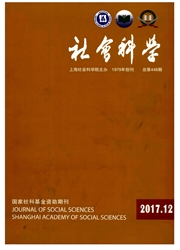

 中文摘要:
中文摘要:
春秋时期晋楚争霸,双方极少正面交战;而美苏争霸,双方亦未正面交战。由此可归纳出:大国争霸有尽可能避免正面交战之倾向,因为这可以避免削弱双方实力而让其他方得利。据此倾向,可以建立大国交战函数:P=(1-F)(1-G)。意为:两极实力的悬殊程度(1-F)与两极直接交战的可能性(P)成正相关关系:同时,多边与两极的实力悬殊程度(1-G)与两极直接交战的可能性(P)也成正相关关系。此函数能有效描述大国博弈的制衡格局、吞并格局、更替格局和混战格局。大国交战函数具有比较优势。
 英文摘要:
英文摘要:
To strive for hegemony between Jin and Chu, there were few direct wars; samely, to strive for hegemony between United States and the Soviet Union, there was no direct confrontation at all. From this we can summarize that the hegemony among the great powers have the tendency to avoid direct confrontations. Because this can avoid weakening their strength and let others benefit from it. According to this tendency, the function of possibility of the direct confrontations among the great powers striving for hegemony, which can be also called as function of direct confrontations among the great powers : P = ( 1 -F) (1 -G). It means that: there is a positive correlation relationship between the disparity degree of the strength of the two poles ( 1 - F) and the possibility of direct confrontations between the two poles (P); meanwhile, there is a positive correlation relationship between the disparity degree between the strength of multilateral powers and the two poles ( 1 - G ) and the possibility of direct confrontation between the two poles (P). The function can effectively reflect the strength game between the two poles and multilateral powers, can deduce the pattern of annexation, and can describe the pattern of replacing among those hegemonie powers. Function of war among great powers has comparative advantage.
 同期刊论文项目
同期刊论文项目
 同项目期刊论文
同项目期刊论文
 期刊信息
期刊信息
